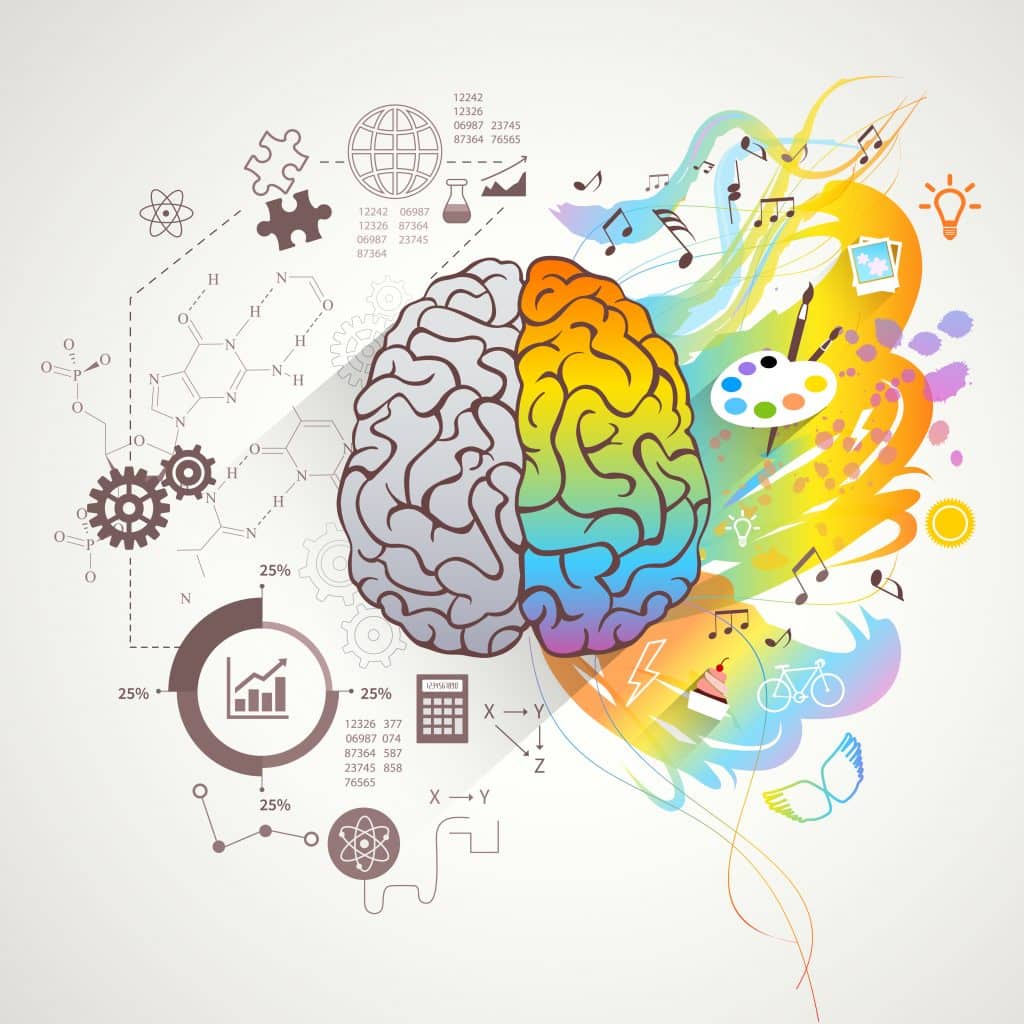A Practical Guide to 4 Key Happiness Hormones

Happy Brain Awareness Week! Here at Haptivate we love all things related to neuroscience! Before I started exploring wellbeing research and mindfulness, I had always just assumed that happiness was for lucky people who came from stable homes, had lots of money and were born good-looking. If you didn’t fit into that template (which I didn’t) then that was it – happiness wasn’t on the cards for you!
Or maybe it was a matter of winning the genetic lottery and being lucky enough to have the right ‘happiness genes’. And while genetics certainly can play a role in happiness, fortunately that’s not the whole story.

One day I came across the amazing work of Dr Richard Davidson and discovered that neuroplasticity essentially enables us to change the way our brains are wired over time. This means we can improve our happiness through regularly completing exercises that engage particular parts of the brain that we don’t always use. Over time, these parts of the brain become stronger and strengthen their connectivity with other parts of the brain. Through this method, over time we can build a brain that’s better wired for happiness.
The implication of Dr Richard Davidson’s findings is that wellbeing is actually a skill that can be learned and improved over time. So if we practice this skill regularly, we should see positive results.
Below, we’ve compiled a short introduction to some of the neurotransmitters and hormones (also known as neuropeptides) that influence our wellbeing and happiness. There’s also some quick tips for easy exercises you can use to boost them!
Dopamine
Dopamine is produced in the brain and is released when we anticipate rewards and pleasure. However, this also means that substances and chemicals that create feelings of reward and pleasure can easily become addictive.
Although dopamine is produced in a number of different areas of the brain, it’s mainly associated with the basal ganglia region. Interestingly, the basal ganglia region is also associated with movement functions including our motor skills.
Our dopamine levels influence our motivation levels and how excited we feel about things. If we have low dopamine levels, we may struggle to concentrate on tasks, motivate ourselves, and we may even find that our movements are limited. We may also seek reward and validation externally through consumption of social media, sugar and other substances or chemicals.
The good news is that there are ways that we can improve our dopamine functioning, increasing our motivation, focus and tolerance for discomfort. As the basal ganglia is responsible both for dopamine production and motor function, doing some high intensity exercise combined with activities that improve your hand eye coordination can have great benefits!
Get free access to wellbeing resources, news and research
Get access to the exclusive Haptivate Wellbeing Resource Hub and stay up to date with all the latest wellbeing at work research, tools and tips by joining our monthly newsletter. We promise not to share your data or spam you with irrelevant information 🙂
Oxytocin
Oxytocin is a hormone that is produced in the thalamus and secreted via the pituitary gland. It’s also known as the cuddle hormone and is released when we experience feelings of safety and is one of the main physiological components of trust. Oxytocin is present when we feel socially connected to others and is also released in high levels when mothers go through childbirth.
Once again it’s possible to increase our oxytocin levels. We can do this by actively seeking out opportunities to connect with others. This can be done both mentally (which is great news if you’re social distancing) or through physical contact.
If you are lucky enough to live with someone you care about, try starting the day with a 20 second hug. Hugs lasting 20 seconds or more have been shown to trigger the release of oxytocin. Interestingly a research study required couples to hold hands whilst watching a tv show. The couples that held hands experienced lower heart rate increases when public speaking than couples in the control group!
However, if you’re flying right solo, then check out compassion meditation as a way of getting your daily dose of oxytocin.

Serotonin
Serotonin is a key player when it comes to regulating our mood. This neurotransmitter also regulates our appetite, sleep and muscle contraction, among other things. It’s produced in the dorsal raphe nucleus and brain stem, however 90% of serotonin receptors are produced in the gut, which helps to regulate intestinal movement.
As a consequence, it’s no big surprise that there’s growing scientific evidence and understanding of a strong relationship between food and mood. That’s one of the reasons why at Haptivate we place such importance on having a healthy routine. Serotonin is also affected by sunlight exposure and how much time we spend outside.
So if we pay attention to the quality of our sleep, relaxing our muscles, eating a healthy diet, and getting outside, we may find that our moods dramatically improve.
If you are one of those people who is chained to their desk, and struggles to get outside during the day and actually take a lunch break, it’s time to think about building daily walks into your routine.
Endorphins
Endorphins are the ‘feel good’ neurotransmitter that can create a sense of euphoria and act as a natural ‘painkiller’ reducing the transmission of pain signals. Endorphins act as both neurotransmitters and hormones and are produced and stored in the pituitary gland.
They help us to manage stressful or uncomfortable situations and help us to experience pleasure instead.
There are many different ways that we can increase our endorphin production, but exercise is definitely one of the best. It not only helps us to feel good but also keeps us healthy and reduces stress levels.
If you are struggling with mobility issues or you have an injury that prevents you from exercising, laughter also releases endorphins, so click on your favourite funny videos, call your best friends, or try laughter yoga!

Exercise and neurogenesis
High intensity exercise also helps us to increase our BDNF levels which are required for supporting neurogenesis. Neurogenesis is really important when it comes to neuroplasticity, so if we can get that exercise in, it’s definitely worth it!
That's a wrap!
Today we’ve really only been scratching the surface when it comes to neuroplasticity, a field that’s relatively new compared to many other medical sciences. At Haptivate our focus is taking the latest scientific data and research and making it accessible, relevant and useful. This empowers organisations and individuals to make better decisions about their wellbeing.
Need a Hand?
If you’re searching for a partner to help improve wellbeing and happiness in your workplace, get in touch with a friendly member of our team. We’re here to help you reach your goals.

Rosa Connor
Co-founder & Director of Programmes, Haptivate






